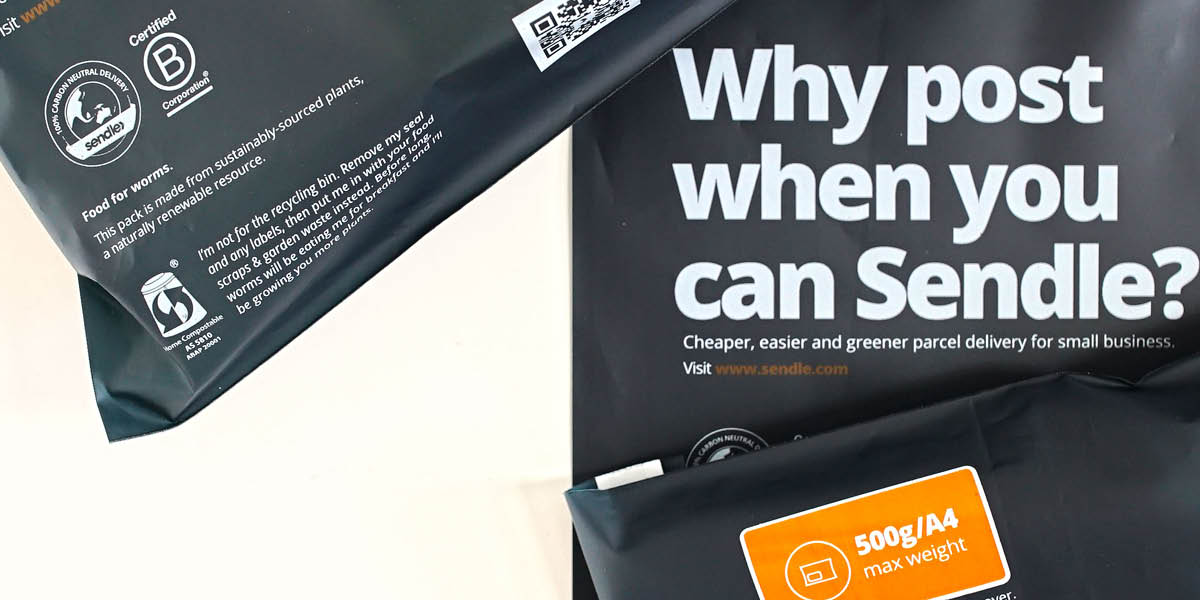On Values and Value, Sendle Delivers for Federation
When brand-new boutique investment house Federation Asset Management was introduced to “virtual” parcel delivery service Sendle, in 2018, it was a meeting of minds.
The logistics company is Australia’s first 100% carbon-neutral shipping service, and, as a certified B Corporation, it is committed to doing business in a way that makes a positive impact across its workers, customers, suppliers, community and the environment. Federation, as a signatory to the United Nations Principles for Responsible Investment (PRI), looks for promising businesses with sustainable business models, so Sendle ticked a lot of boxes from the outset.
“Sendle is the Vodafone of parcel delivery,” says Cameron Brownjohn, Chief Executive Officer at Federation Asset Management. “Vodafone, in Australia, is a ‘virtual’ mobile network operator – it sells customers mobile telephony services, but it doesn’t own its own towers and kit – it piggybacks on Optus’ infrastructure. Sendle does the same thing – it’s a virtual e-commerce logistics business.”
Brownjohn says the simple model is that Sendle moves a thing from A to B, by using other people’s trucks and warehouses. “Sendle uses its computers to find the marginal capacity in the logistics network, and buys it at its marginal cost, in real-time without human interaction. Sendle sees its natural customers as small-to-medium-sized enterprises (SMEs), and it offers them affordable national flat rates. By unlocking the power of big business logistics – convenience and affordability – it has been able to support the small businesses that are the backbone of the Australian economy.”
This means that Sendle fits perfectly into the private-equity target market for Federation, of looking for operating companies that fit a social and economic need, and backing them with growth equity.
Sendle was launched in 2014 by entrepreneur James Chin Moody, who at the time was running his first business, TuShare, a community platform where Australians could share clothes, toys and household items. Finding people to share things wasn’t the problem – it was delivering them.
Chin Moody noticed that the trucks of the big courier companies were always delivering things out into the suburbs, but were going back empty. He asked the couriers whether, if he could find delivery orders to fill their empty “backhaul” runs to the depot – which they had to do anyway – they could cut a deal on rates.
The Sendle founders quickly realised that there were hundreds of small businesses that needed to send items they had sold online, but that Australia Post and courier-company full rates were too expensive for them. And they had to line up at the Post Office to send them.
Coining its slogan “Post without the Office,” Sendle built an algorithm to find situations where its network of delivery provider partners had spare capacity, and could swing-by the customers’ premises to pick up the parcels. Effectively, Sendle prioritised solving the “first mile” of parcel delivery, which is the most important thing for customers. In an Australian first, Sendle lets users choose who pays for delivery – a feature considered perfect by online marketplaces such as eBay, Gumtree and Trading Post.
“We started talking to them in 2018, when they were considering expanding into the US,” says Brownjohn. “We liked the tailwind of the industry itself – particularly the SME focus – and we thought the Sendle business model was very innovative in terms of being capital-light, and leveraging its ability to identify spare capacity in real-time.
“We could see that it was a really fast-growing Australian success story, and that there was every likelihood that it would be able to replicate that success in the US, given that they were going there because a couple of their customers had asked them to move into the US with them. They were looking for money to help them grow their business into the US, and the investment made a lot of sense to us. The economic side, the social side, with helping SMEs, and the carbon-neutral nature of how they did it (Sendle uses carbon-dioxide offsets) meant that there was real alignment of values between us,” Brownjohn says.
Moody relocated to Seattle and set up a Sendle operation, and the hard work paid off with eBay and Shopify signing-on as anchor customers. “They’re growing really quickly in the US. We’re really proud and excited at how Sendle is performing, and pleased that we gave them money to help them grow,” says Brownjohn.
“We invested in December 2018, and in every month since we have been involved volumes and revenues have grown by 50% on a 12-month basis – in many months it has been more than 100%. In April, for example, it was up 200%,” he says.
At some point, Federation will move into its exit plan from Sendle, but for the time being, Brownjohn says it remains an exciting ride. “Seeing how they live their values in their business, and how such a simple but innovative business model has been able to scale-up, has been a very rewarding experience for us at Federation,” he adds.











